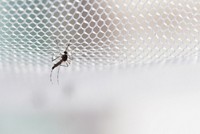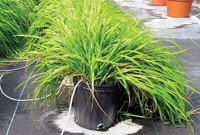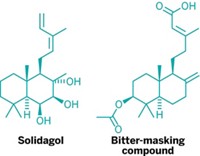Advertisement
Grab your lab coat. Let's get started
Welcome!
Welcome!
Create an account below to get 6 C&EN articles per month, receive newsletters and more - all free.
It seems this is your first time logging in online. Please enter the following information to continue.
As an ACS member you automatically get access to this site. All we need is few more details to create your reading experience.
Not you? Sign in with a different account.
Not you? Sign in with a different account.
ERROR 1
ERROR 1
ERROR 2
ERROR 2
ERROR 2
ERROR 2
ERROR 2
Password and Confirm password must match.
If you have an ACS member number, please enter it here so we can link this account to your membership. (optional)
ERROR 2
ACS values your privacy. By submitting your information, you are gaining access to C&EN and subscribing to our weekly newsletter. We use the information you provide to make your reading experience better, and we will never sell your data to third party members.
Biological Chemistry
Chemical Invisibility Cloaks Thwart Pesky Mosquitoes
ACS Meeting News: Compounds found on the skin can confuse the pesky critters and keep them from biting
by Bethany Halford
September 16, 2013
| A version of this story appeared in
Volume 91, Issue 37
The secret to keeping mosquitoes at bay may be buried within our own skin. Researchers led by Ulrich R. Bernier of USDA’s Agricultural Research Service, in Gainesville, Fla., reported that certain compounds secreted through human skin or formed by bacteria on the skin can render people invisible to mosquitoes. The researchers have been working on the project since the 1990s while trying to answer the question: What makes certain people more attractive than others to mosquitoes? Bernier’s team is still searching for a definitive answer to that question, but meanwhile they have discovered that small heterocycles, such as 1-methylpiperazine, can effectively cloak a person from detection by Aedes aegypti mosquitoes. The compounds don’t work like DEET, or N,N-diethyl-m-toluamide, the active ingredient in many bug sprays that repels the biting insects. Rather, the small heterocycles make it so the mosquitoes don’t realize a person is in the vicinity. The compounds could be used to make novel bite-prevention creams and lotions for folks who don’t like the smell or astringency of DEET. Bernier and colleagues have patented the compounds for these uses (U.S. Patent 8,207,157 B2).





Join the conversation
Contact the reporter
Submit a Letter to the Editor for publication
Engage with us on Twitter